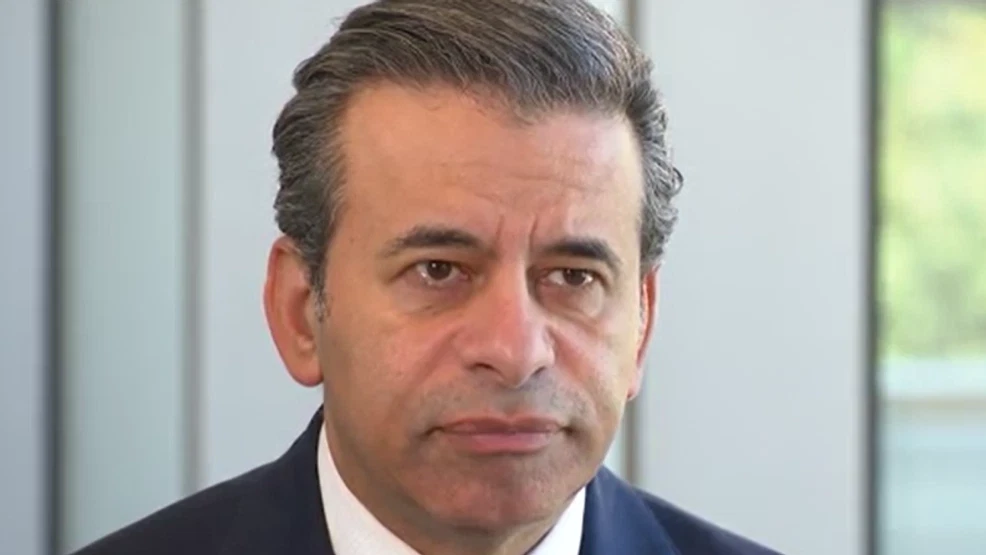By Neil Shaw
Copyright manchestereveningnews

One thing most people do within minutes of waking up could be fast-tracking their brain’s ageing process, according to an expert. It’s a habit so automatic that most people don’t even realise they’re doing it, yet it hijacks the brain’s natural recovery state and floods it with stress hormones, right when it’s most vulnerable. An expert is warning that reaching for your phone first thing could be contributing to cognitive decline and premature brain ageing. “Your brain is incredibly vulnerable in those first moments after sleep,” said Lev Fomchenkov, CEO of Cosmic Nootropic . “When you immediately flood it with stressful news or overwhelming information, you’re essentially hijacking your natural wake-up process and putting your mind into a state of chronic stress.” Fomchenkov added: Most people think morning brain fog is just part of getting older, but often it’s a direct result of how we’re treating our minds in those vital first moments of the day. When you flood your brain with stressful information immediately after waking, you’re essentially training it to operate in crisis mode. This creates a cycle where your cognitive resources are constantly depleted before you even start your real work. “The beautiful thing about adjusting this habit is how quickly you can see results. Clients who switch from morning news scrolling to meditation or journaling often report improved mental clarity within just a few days. It’s one of the simplest changes you can make for long-term brain health, yet it has profound effects on focus, memory, and overall cognitive resilience.” This habit is more widespread than you might think. According to the most recent survey data available, 80.6% of Americans check their phones within the first 10 minutes of waking up, with 62% reaching for it immediately upon opening their eyes. These figures from 2013 have most likely significantly increased by 2025, with smartphone ownership becoming universal. The problem isn’t only limited to starting your day on a negative note. The core issue, Fomchenkov warns, is what this morning ritual does to your brain’s long-term health and cognitive resilience. “Think of your brain like a computer that’s just booted up,” said Fomchenkov. “When you bombard it with stressful content right away, you’re forcing it to jump straight into high-alert mode before it’s ready.” Fomchenkov said that, during sleep, your brain clears out toxins, consolidates memories, and resets neurotransmitter levels. This natural recovery process leaves your mind particularly sensitive to external stimuli in those first critical minutes after waking. Consuming stressful news during this vulnerable window triggers an immediate cortisol spike that can throw off your entire day’s cognitive performance. He said scrolling through distressing headlines or anxiety-inducing social media posts first thing in the morning makes your brain interpret this as an immediate threat. Your cortisol levels surge, your sympathetic nervous system kicks into overdrive, and your mind shifts into survival mode. “This stress response drains the mental energy your brain needs for higher-order thinking,” said Fomchenkov. “Instead of using that precious morning clarity for focus and decision-making, you’re burning through it just to process negative information that has no direct relevance to your life.” Fomchenkov said chronically elevated stress hormones impair memory formation, reduce cognitive flexibility, and can even shrink brain regions associated with learning and emotional regulation. The cortisol flood affects far more than just your morning mood. What starts as a simple morning scroll compounds into serious long-term consequences. Repeated exposure to stress-inducing content first thing in the morning creates a pattern of chronic mental fatigue that your brain struggles to recover from. “We’re seeing people who complain about brain fog, difficulty concentrating, and feeling mentally exhausted by mid-morning,” said Fomchenkov. “When we dig into their routines, that immediate phone grab is often the smoking gun.” Over time, this daily stress assault contributes to reduced focus, impaired decision-making abilities, and decreased memory resilience. Your brain essentially learns to expect stress first thing in the morning, keeping it in a state of heightened alertness that’s exhausting to maintain. “What’s most important is to give your brain time to wake up naturally before introducing external stimuli,” said Fomchenkov. He lists brain-friendly morning alternatives that support cognitive health instead of sabotaging it



